Automatism and Involuntary Intoxication
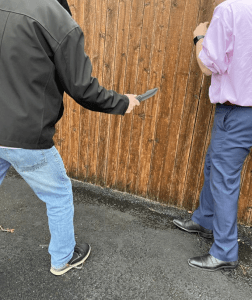 While the concepts of Automatism and Involuntary Intoxication may sound similar, they are different in many ways. One focuses mainly on the act itself, while the other focuses more on knowledge of the act.
While the concepts of Automatism and Involuntary Intoxication may sound similar, they are different in many ways. One focuses mainly on the act itself, while the other focuses more on knowledge of the act.
Automatism
Automatism is related to, but different from, the insanity defense. While insanity deals with whether a person does or does not know his action is wrong, Automatism deals with whether the person was conscious of the act at all. The Court in Mendenhall v. State, 77 S.W.3d 815 (Tex.Crim.App. 2002) defined Automatism (citing a legal treatise) as:
“[O]ne who engages in what would otherwise be criminal conduct is not guilty of a crime if he doe so in a state of unconsciousness or semi-consciousness. Although this is sometimes explained on the ground that such a person could not have the requisite mental state for commission of the crime, the better rationale is that the individual has not engaged in a voluntary act.”
In Law School, first year students (“1Ls”) learn the two general parts of a criminal act: the “mens rea” (mental state) and the “actus reus” (physical act). Automatism goes towards the “actus reus” in that the defense claims the act itself was not voluntary. An example of this would be if a person was having a seizure and hit someone nearby in the face. The person having the seizure may have assaulted someone, but the assault was the result of something that was not in his control and was not voluntary. Conversely, a person in a mosh pit at a concert that hits a person outside the pit in the same way would not have this defense, as the action itself was voluntary.
 Involuntary Intoxication
Involuntary Intoxication
The general rule for intoxication is that ‘voluntary’ intoxication is not a defense to a crime. In other words, going to a bar and overdrinking doesn’t mean that you can use being drunk as a defense. Involuntary Intoxication occurs, generally, when a person does not know about or someone forces them to consume the intoxicant. A good example of this is a “spiked” drink. This defense goes towards the “mens rea” for the crime, and acts similar to claim of temporary insanity. The idea is that one may perform a voluntary act, but not have the required mental state for the crime.
Using the same seizure example as Automatism, imagine that the person had a seizure because of a medication that was slipped into his breakfast that morning without him knowing. Even though he physically assaulted the other person, he lacked the required mental state because he was involuntarily intoxicated.
Different Facts Make a Huge Difference for Automatism
Imagine, in contrast, that he knew the side effects of each medication, but just took the wrong one that morning. Now, according to most case law, he cannot benefit from either defense. This is because he had the knowledge that his medication could cause intoxication, and did the “voluntary act” of taking his medication, even if he took the wrong medication. Essentially, those facts show voluntarily intoxication. Remember, though, that these are very general examples and each case can be very different from another.
More about Mimi Coffey & The Coffey Firm
When people look for a Top DWI Attorney or Best DWI Attorney, they look for experience, certification, and respect in the legal community. Mimi Coffey is a nationally-renowned trial attorney, board-certified in DWI by the NCDD. She has been practicing for over 24 years and is an author of multiple DWI Defense textbooks. She is also a national and state-wide lecturer on the law.
The Coffey Firm handles a wide variety of cases, including Unlawful Carrying Weapon (UCW), Assault (including family violence), and Possession charges. We can also help you try to get a DWI off your record or avoid probation revocation.
Mimi is also listed on several “top criminal lawyer near me” directory listings such as Wise County DWI Lawyers, Tarrant County DWI Lawyer, Dallas County DWI attorney, Collin County DWI attorneys and Parker County DWI attorneys. Mimi is a caring DWI Lawyer in Dallas – Fort Worth. She is also involved in the Texas Tech School of Law foundation and enjoys using the skills she has developed to give back to the community.


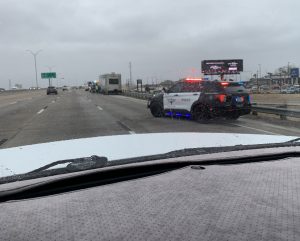 DWI Manslaughter is in a strange gray area of the law. Is it a DWI? Or, is it closer to a murder or manslaughter? In many ways, DWI Manslaughter is just a DWI involving death.
DWI Manslaughter is in a strange gray area of the law. Is it a DWI? Or, is it closer to a murder or manslaughter? In many ways, DWI Manslaughter is just a DWI involving death. Any holiday, no matter how major or minor, is a risky time to be on the road. Police tend to be out in full force for
Any holiday, no matter how major or minor, is a risky time to be on the road. Police tend to be out in full force for 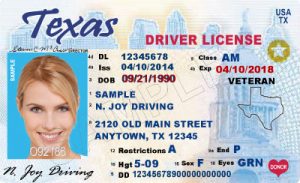 ALR Update
ALR Update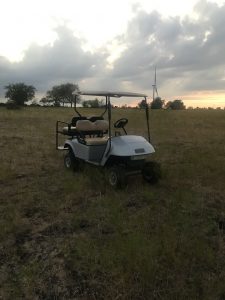 Occasionally, police make DWI arrests for people driving a golf cart. However, whether a golf cart satisfies the requirements for a DWI is a strange question. DWI requires 1) operating, 2) a motor vehicle, 3) in a public place. Driving a golf cart would count as operation. However, is a golf cart a “motor vehicle” for purposes of a DWI? Also, what is a “public place” in relation to golf carts?
Occasionally, police make DWI arrests for people driving a golf cart. However, whether a golf cart satisfies the requirements for a DWI is a strange question. DWI requires 1) operating, 2) a motor vehicle, 3) in a public place. Driving a golf cart would count as operation. However, is a golf cart a “motor vehicle” for purposes of a DWI? Also, what is a “public place” in relation to golf carts?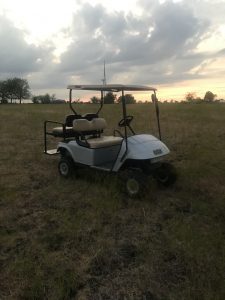

 Convictions involving assaults, specifically family violence, carry a heavier price than many other convictions. Among the most important price is eligibility for parole early. The
Convictions involving assaults, specifically family violence, carry a heavier price than many other convictions. Among the most important price is eligibility for parole early. The  In many ways, Texas DWI is the same for both adults and minors. In other ways, a
In many ways, Texas DWI is the same for both adults and minors. In other ways, a